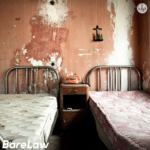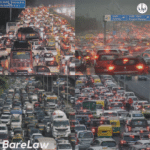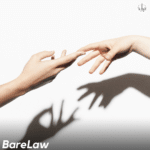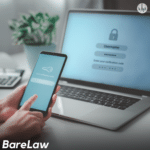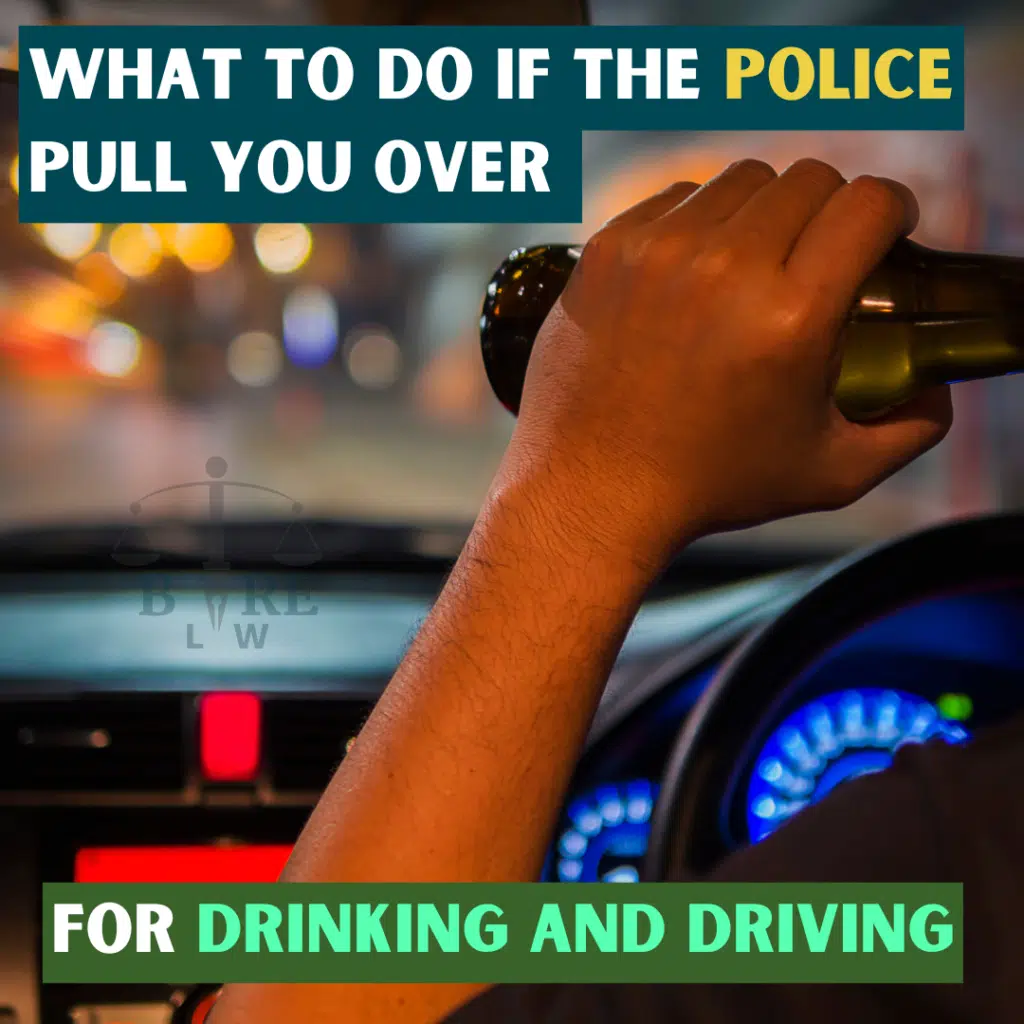
Synopsis
If you're pulled over for drinking and driving in India, it's essential to remain calm, cooperate with the police, and understand the legal consequences of a DUI offence, including fines, imprisonment, and suspension of your driver's license.
What to Do if the Police Pull You Over for Drinking and Driving
Drunk driving comes with extremely serious penalties in India, and it is illegal not just because it can be deadly but also because laws are stringent to prevent it. If you ever are stopped by the police and they pull you over drinking, they are well within their rights, especially with the excuses you will give them to detain you. Consider your rights and responsibilities and the best way to deal with them. The article listed below will give you basic information on what you should do if the police pull you over for DUI and the legal consequences that can arise from it.
Step-by-Step Guide: What to Do When Stopped by Police
- Stay Calm and Composed If the police stop you, it is most important to stay calm. Avoid panicking, or you’ll just make things worse by trying to run away. If you are respectfully pulled to the side, turn off the engine and headlights and remain in your car until told to get out.
- Example: If a police officer gives you the finger to pull over, then they will point you to a side, open a window slightly, and then let you know what to do. Don’t move quickly or suddenly; don’t reach for anything until the officer asks for your papers.
- Cooperate with the Authorities. In India, police have the authority to pull you over and conduct a breathalyzer test if they suspect you of driving under the influence of alcohol. Cooperate fully with their requests to avoid escalating the situation.
- Example: Let’s say you’ve had a few drinks with friends but thought you were under the limit. When the officer approaches and asks for your license, hand it over without argument. If they request a breathalyzer test, allow them to conduct it.
- Do Not Argue or Resist. Even if you believe you are sober, it’s important not to argue or become aggressive. Resisting a breathalyzer test or questioning the officer’s authority could lead to more serious charges. Always keep in mind that compliance is the best strategy in this situation.
- Hypothetical Situation: You had a beer with dinner and think you’re below the legal limit. When the officer administers the breathalyzer test, it reads over the limit. Instead of arguing that the machine is faulty, calmly ask what the next steps are and comply.
- Breathalyzer Test and Legal BAC Limit: If you are suspected of drinking and driving, the police will administer a breathalyzer test to check your Blood Alcohol Content (BAC). In India, the legal limit is 30 mg of alcohol per 100 ml of blood, which roughly equates to a BAC of 0.03%. If your BAC exceeds this limit, you can be charged with DUI.
- Hypothetical Scenario: You’re at a New Year’s Eve party, have had a few drinks, and decide to drive home. You’re stopped at a checkpoint on the way, and your BAC reads 0.05%. The police inform you that you’re over the legal limit and may need to come to the station for further testing or processing.
- Be Aware of Your Rights While cooperation is key, knowing your legal rights is important. The police must conduct the breathalyzer test properly, and you have the right to request a second test or a blood test if you believe the results are inaccurate. Furthermore, if you’re arrested, you are entitled to legal representation.
- Example: Imagine you suspect the breathalyzer device was faulty because you haven’t had any alcohol. You can calmly request a second test or ask to be taken for a blood test at the nearest hospital for more accurate results.
- Do Not Attempt to Bribe Offering a bribe to a police officer is illegal and can escalate your situation dramatically. In India, bribery is a criminal offence, and attempting to bribe an officer can result in more severe penalties, including jail time.
- Hypothetical Situation: Let’s say you’ve been caught with a BAC of 0.07%, and you think offering the officer ₹5,000 will help you avoid legal trouble. This could lead to bribery charges, increasing the severity of your situation and potentially leading to more jail time or fines.
Legal Consequences of Drinking and Driving in India
The penalties for drinking and driving in India are severe and designed to act as a deterrent to this dangerous behaviour. If you’re convicted of a DUI, the following penalties may apply:
- First Offense: If you are found guilty, you will be fined up to ₹2,000 or imprisoned for up to six months. It may also run your driver’s license in a temporary void.
- Repeat Offenses: The fine may go up to ₹3,000 for a second or subsequent offence and imprisonment for up to two years. The court can also order that your driver’s license be cancelled.
- Accidents While Drunk: The punishment for being in an accident while drinking alcohol is much more severe. But you could also be charged with additional criminal offences, depending on the damage or injuries caused by or to others: reckless driving or even culpable homicide.
What Happens After a Positive Breathalyzer Test?
If your B.A.C. is higher than the legal limit as measured by your breathalyzer test, you will probably be taken to the nearest police station. This will be followed up by a more detailed investigation and perhaps a blood test, too.
- Confiscation of License: If you are over the legal BAC limit, the police can confiscate your driver’s license.
- Court Appearance: You will need to go to court, possibly where you will be charged with something depending on the level of intoxication and whether it’s your first time or the repeat.
- Legal Representation: It is highly recommended to seek the services of a lawyer who will help you stay out of the legal room and also minimise the level of your penalties in some cases.
Hypothetical Case Study: First-Time Offender
At a friend’s party, Ajay, 29 years old, gets drunk on two glasses of wine. He feels sure that he’s below the limit and drives home. Ajay is stopped at a police checkpoint on his way. His BAC is 0.04%, above the legal limit, and after submitting to a breathalyzer test. Ajay still has his license temporarily confiscated by the police station. He could be fined ₹2,000 or imprisoned for up to six months. A lawyer helps cut the penalty to a fee, and Ajay’s license is reinstated after a short suspension.
Tips to Avoid Drinking and Driving
- Plan Ahead: If you do plan to drink, arrange for someone to pick you up so you do not have to use rideshare services or public transport after you’ve had too much.
- Use Public Transport: If you’ve been out and about in a city with an efficient public transportation network, take the metro, bus or train home after a night out to avoid a DUI.
- Stay the Night: When you have consumed alcohol and you refuse to drive home, consider staying over at a friend’s house or event instead of making the drive yourself.
- Know Your Limits: Consider your consumption of alcohol and, for sure, refrain from driving if you have any doubt about being sober.
Conclusion
It’s a serious offence in India, so if you are caught, the penalties range from a fine to a prison sentence. If cornered by the police, it’s important you remain calm, cooperate with the authorities, and know your rights. This is all standard practice, as refusing to comply will worsen matters. Planning ahead and making responsible decisions can help you avoid legal trouble and, above all, your own and others’ safety on the roads.
It’s easy to want to test your limits or take shortcuts, but don’t drink and drive because it can be fateful to both yourself and others. There is a general rule of never experimenting on the holy grail … err on the side of caution.
Frequently Asked Questions (FAQ)
1. What should I do if I’m pulled over by the police for drinking and driving?
Remain calm and cooperative. Hand over your documents when requested and submit to a breathalyzer test without argument.
2. What is the legal blood alcohol limit in India?
The legal BAC limit in India is 0.03% (30 mg of alcohol per 100 ml of blood). If your BAC exceeds this limit, you can be charged with DUI.
3. Can I refuse a breathalyzer test?
Refusing to take a breathalyzer test can result in more severe penalties, including arrest. It’s better to comply with the test.
4. What are the penalties for a first-time DUI offense?
For a first offense, the penalties may include a fine of up to ₹2,000, imprisonment for up to 6 months, and suspension of your driver’s license.
5. What happens if I’m involved in an accident while driving under the influence?
If you’re involved in an accident while under the influence, penalties can be more severe, including additional charges like reckless driving or culpable homicide, depending on the situation.
6. Can I avoid jail time for DUI?
For first-time offenses, penalties may be reduced to fines or suspension of your license, but repeat offenses or accidents may result in imprisonment. Hiring a lawyer may help navigate the legal process.
7. What should I avoid doing during a DUI stop?
Avoid arguing, refusing to cooperate, or attempting to bribe the police. Such actions can worsen your situation and lead to harsher penalties.
